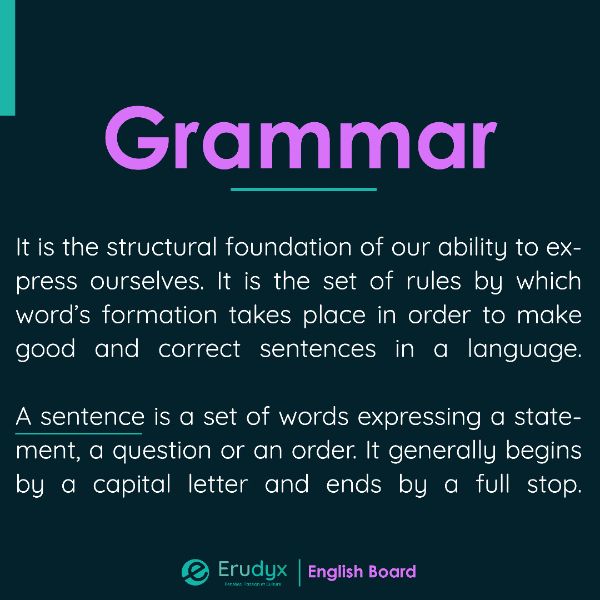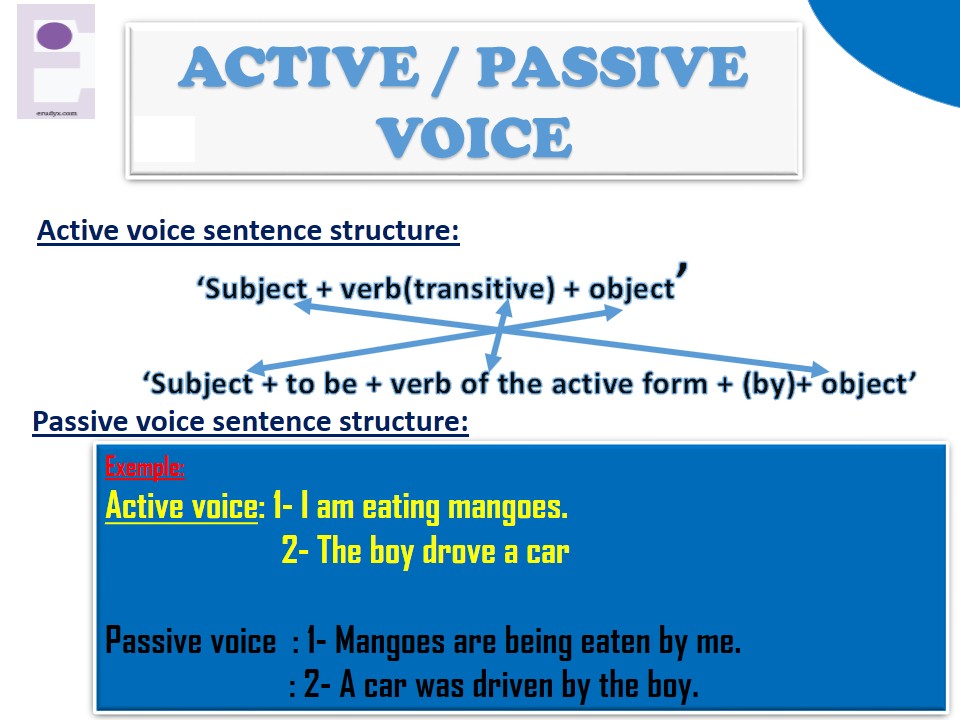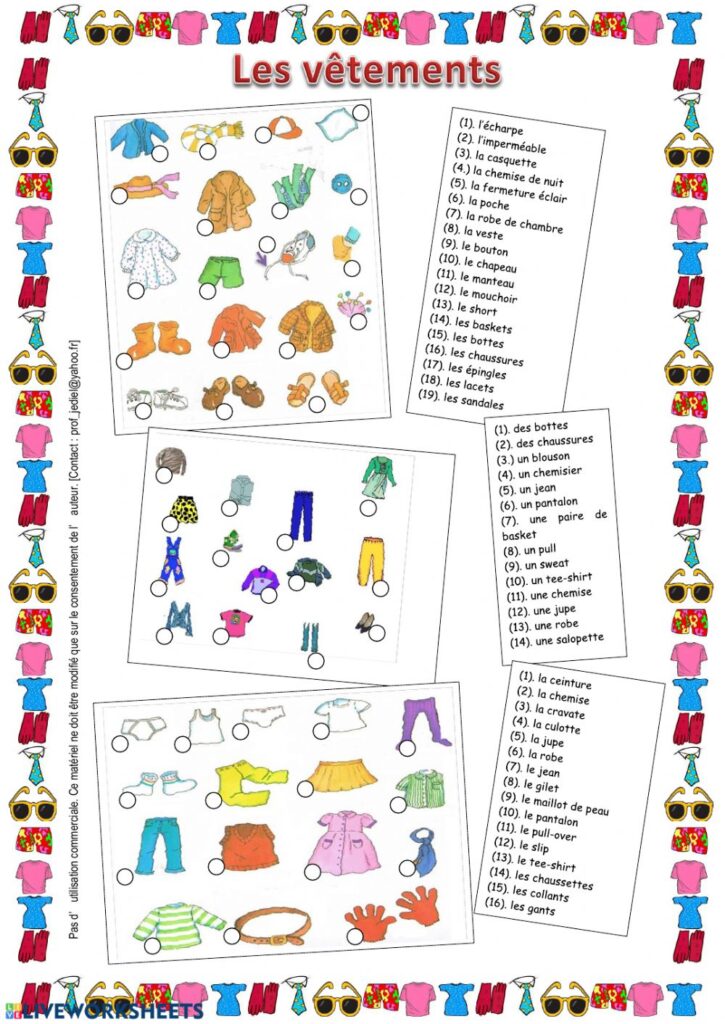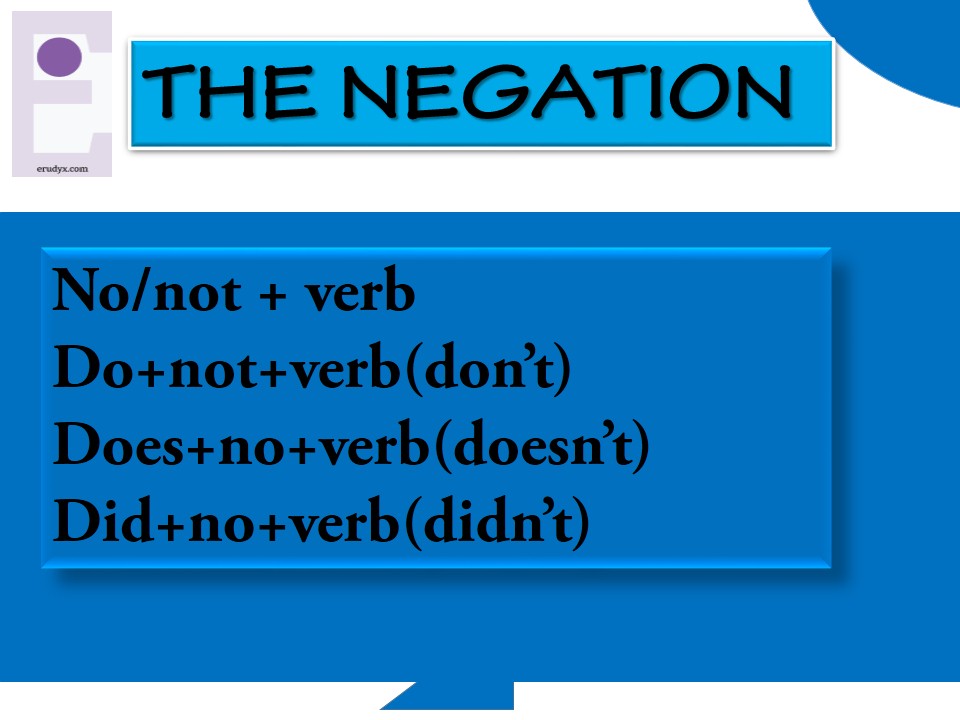Grammar Rule
Hello, welcome to our Erudyx English board’s heading: Grammar Rules in English.
First, what is Grammar [‘græmər]???
According to David Crystal in the essay « In Word and Deed », grammar is the structural foundation of our ability to express ourselves. He continues, saying that grammar constitutes the basis of any language as it embodies rules to which people refers to in communicating. Simply, grammar is the rules by which words’ formation takes place in order to make good and correct sentences in a language.
In this part, we’re going to deal with different points of English grammar, learn and know how to use them for a better proficiency in the language. We think we’ll gain and share a lot in this board through our post and also your suggestions, acknowledgments, comments and others…
Today’s and first lesson is on:
SENTENCES
- What is a sentence [‘sentəns]?
Called in French “phrase” [fʀaz] but different from the english word “phrase” [frayz], a sentence is a set of words expressing a statement, a question or an order. It generally begins by a capital letter and ends by a stop (full stop).
- What are the components of a sentence?
The components of a sentence, usually called sentence elements [‘sentəns elɪmənts] are words or group of words arranged in order to have correct and meaningful sentences. They are: The subject, the verb and (the) complement(s) / (object).
Eg: Kodjo eats akplé.
Kofi is a taxi-driver: Kofi as the subject; is as the verb and a taxi-driver as the complement.
1. The subject [‘sʌbdʒɪkt].
The subject the principal character in a sentence. He is the doer of the action or the one the sentence is about. In a sentence we can find the subject, asking the question: Who/what + verb + complement?
Eg: Who is the taxi-driver? Answer: Kofi. So, Kofi is the subject of this sentence.
2. The verb [vɜ:rb].
The verb is the word expressing the action or the state of the subject in the sentence. It is usually place in the middle of the sentence, between the subject and the complement.
Eg: Kodjo eats akplé: verb showing that Kodjo is doing something (eating).
Kofi is a taxi-driver: here, the verb informs on the situation (profession) of the subject.
Then, we can find from these two examples that we have in English some verbs, denoting states or events and others especially for actions.
3. The complement [‘kɑ:mplɪmənt].
The complement is a word or group of word placed after the verb, and which gives more information on the subject’s state or action. It can be a simple object or can be (…) adjective/adverb + object… To find the complement in a sentence, we should ask the question: Subject + verb + (…) who/ what?
Eg: Kodjo eats akplé: Kodjo eats ‘what’? (What does Kodjo eat?) Answer: Akplé.
Akplé is now giving more information on the thing being eaten by Kodjo.
Thank you for following…See you on next course. Be connected.









Can you mention 1-2 countries where Akplé is a typical dish ?
Akplé is an Ewe (a southern Togo ethnic group) and Fon(Benin) poeple’s principal meal. We can also find other ethnic groups who like this food too. Thanks…
Very good subject here ☺️, I hope more people who want to master the English language will find what they need here.(This is not a réflexion thought ☺️, just some appreciation)